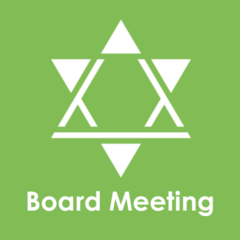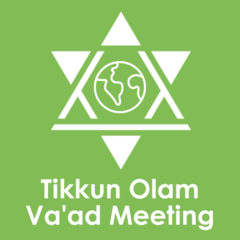Talking With Kids About Anti-Semitism
THE TREE OF LIFE: Navigating Conversations With Our Children After Acts of Violence and Anti-Semitism
From Rabbi Joshua Lesser:
Friends, how do we begin to talk about the kind of violence and hatred that the Tree of Life Community experience to our children? And how do we not?
I wrote an article for Expert Beacon many years about how to talk to children about the death of a loved ones. I revisited it and took from my earlier wisdom and from other sources that I have read over time about to walk this scary path with our children after violence and bigotry.
I hope that I get something right in this guide. and you find it useful. As someone who deeply cares about the wellbeing of our children, I had to try:
THE TREE OF LIFE: Navigating Conversations With Our Children After Acts of Violence and Anti-Semitism
by Rabbi Joshua Lesser
The violence that the Tree of Life Synagogue experienced and the hatred that was behind it has been terrifying. It is heartbreaking and for many angering. We need healing--and so do our kids.
Many of us wonder how we can speak to our children about acts of terror when we cannot fully comprehend them ourselves. We are thrown by such unexpected and horrific violence. It makes sense that talking to our kids feels daunting. Truthfully, it is.
Yet, talking to our kids is essential. While we may wish to avoid talking about violence and anti-Semitism, sadly our children hear and learn about them through other sources. Terror, violence, bigotry are part of the world we live in and on the news frequently. By engaging our children, we are ensuing that they do not have to encounter these scary issues alone. We may wish to shield our children, but it is as important to prepare them and comfort them.
It is difficult to watch our children in pain and fear. While parents can’t make their children’s discomfort disappear, you can help to instill in them the ability to cope with loss and cultivate a sense of resilience. There are ways parents can engage their children in conversation, storytelling, prayer, and ritual, which can be useful tools in supporting them. Ultimately, parents play an important role in offering safety and helping kids make meaning and interpreting such a significant event.
Here are some suggestions to prepare you to support your children in responding to the tragedy at the Tree of Life synagogue with meaningful and comforting conversations with your children:
Check in with yourself
All of us are affected by this horrifying act. Before talking with your child make sure you are emotionally in a place to do so. If you need to talk with someone to process your emotions, please do so. Take care of yourself first before offering yourself as a supportive listener. It is ok to be emotional in the presence of your children, but make sure to the best of your ability that you are centered enough to be there for your child.
Be Present, Not Perfect
Perfection is not the goal, being present is. There are no perfect words. While it may seem like kids want answers, they also need to feel like they are being listened to. See what they already know. Children are perceptive. They may have heard directly about the tragedy from the news or from other children. But even if they have not, children are quite perceptive. They can sense when their parents are keenly attuned to watching television, checking their phone, having hushed conversations. This can create confusion and lead them to create some of their own conclusions. Being present to them can alleviate that.
You do not need to have all the answers. It is ok to say that you do not know why certain things happen, or let them know you have the same questions. It is better to be honest than to mislead them.
You may want to check in with them. Think about some prompts that can get them started. You can check in with them very generally about how they are feeling or about their day. Or you may want to ask them a questions like “You may have heard that something very sad happened, what have you heard?”
Establish that you are a person your children can speak to about their fears, their confusions, their feelings. Knowing that someone will listen creates comfort, but also do not force conversation. They may need take the conversation in small pieces.
Focus on Understanding
Prioritize your child’s feelings even if it feels self-focused. Depending on the age, children are often most concerned about the direct impact on them. While we want to support them to be caring and concerned members of the community, start where they are. Address their feelings, on their level. Knowing that they are safe is important and allows them to move on to concern for others and understanding more of what happened. Your willingness to listen to them models very important behavior for the long term.
Helping children develop a palette of feelings is important. Be curious and explore with them what they are feeling and how they feel it.
Start with Simplicity
Our children do not need to know everything right away. Limit how much exposure they have to news. Be discerning about what you share with them. Give them as much information as you think they need and can to process, both about this particular act of violence and also about the violent nature of anti-Semitism. Violence has lasting effects on children, so be judicious; neither shelter them nor deluge them.
As a young child, I was exposed to too much violent information and images of the Holocaust and it was unhealthy and unproductive. We have much better ways of introducing our children to these topics. Start with the underlying values of dignity, respect, loving kindness. Share with them the reassuring responses of courage, concern and unity. Concepts are important for younger kids; save specific details for older children. For very young children, use the most basic language and concepts. Follow their lead; no need to complicate things for them.
Assure and Equip Them
Violence and terror are so rattling because they are beyond our control. Hate crimes pack a double whammy because not only does it undermine our control, but we feel targeted for who we are.
With our children we need to both support them in acting on areas where they do have control of their own safety and feeling connected to who they are. Parenting experts recommend looking at the ways young children can help protect themselves and pointing that out. In an article in Parents Magazine, “How to Talk to Kids About Terrorism” by Ellen Sturm Niz, there is great advice from Denise Daniels. “Daniels recommends talking to little kids about strategies they use for keeping themselves safe, like wearing a seatbelt in the car, wearing a helmet when riding a bike, and practicing fire drills. "Simple little things like that all help kids think, 'Well, gosh, there are things I can do to keep myself safe.'" Focusing on ways that children actually do have control in many areas of keeping themselves safe and understanding how you keep them safe is crucial.
Older kids can be encouraged to take their concern into action. Whether it is by raising money for the communities affected or educating others about bias and bigotry, knowing they can take their worry and turn into impact is an important lesson. (It also applies to us; it is why I am writing this.)
Revisit the conversation
You can discuss this more than once. Information keeps coming in to our children from friends, snippets of conversations at school. Particularly, around issues like anti-Semitism, keeping the channels open is important to support our kids in forming a positive identity and pride in who they are. They may also experience heightened awareness of who they are as a Jew and the vulnerability it causes. Your presence is invaluable in assuring their ability to claim their Jewishness as a vital part of who they are.
You can find children’s book for all ages on the ADL Website to help further the conversation on anti-Semitism. Similarly you can find resources to keep the discussion going at the PJ Library Website, too. And when the bombing in Paris occurred, I found this article in The Guardian had very useful book recommendations for children on terror, also note the suggestions they crowdsourced at the end.
Resilience is Spiritual, Not Just Practical
While my Jewish education about anti-Semitism and violence was heavy handed, it was balanced out by the importance of ritual and prayer. Understanding that your children have a spiritual life is important.
For parents, it can feel incredibly challenging to understand the best ways to respond to the spiritual issues and questions that arise from kids. While there is a strong connection between the psychological aspects of fear and grief and the spiritual ones, many people feel particularly inadequate in providing what children need spiritually to navigate loss of this magnitude. Many children have an inherent way of seeing the world through a spiritual lens--with a sense of wonder, awe and a desire to seek.
How do you answer where is G!d in all of this? Again, it is fine and expected not to always have definitive answers, but to recognize that this is an opportunity to ask them them what they think. By all means, share with them your beliefs. For me, this is an opportunity to talk about G!d being present when we create openings for G!d’s presence. G!d is in the healing and the comfort; in the grieving and in tears. The image of G!d crying like a lion at the destruction of the temple in the Talmud is one that has given me comfort. We all have choices how much we want to connect to godliness and the more open we are, the more connected we are.
Rituals and prayers are containers for the unspeakable and important channels for our feelings. Saying kaddish, lighting candles, and doing tzedakah can be important ways to move beyond just words of explanation. Also rituals of safekeeping, like the bedtime Shema or chanting prayers like “Hareni m’kabel alai...”, I take upon myself the mitzvah of loving my fellow human being as myself” upon waking create a consistency and sense of comfort and purpose. Taking a child to a vigil or attending services are important ways for them to feel like they belong to their community.
And this approach is a double healing in that it both offers meaningful solace in the face of terror and connects them deeply to being Jewish and a part of the Jewish community.
There is no life without loss
In conclusion, it compounds our heartbreak to see our children scared and in pain. While parents can’t make our children’s pain disappear after such violence, they can help to instill in children the ability to cope with loss and cultivate a sense of resilience. Helping children navigate terror and bias is extremely important because they are beginning to assimilate new information, which is confusing and fraught. The role of parents is to be companions with their kids on this challenging aspect of life, not to pretend it didn't happen. This is the learning of a lifetime and we grow as we prepare and love our children through these unspeakable events. May we all find comfort together.
Mon, October 27 2025
5 Cheshvan 5786
Upcoming CBH Events
-
Tuesday ,
OctOctober 28 , 2025 What is a Rabbi and Do We Really Need One?
What is a Rabbi and Do We Really Need One?
Tuesday, Oct 28th 7:00p to 9:00p
with Rabbi Josh -
Sunday ,
NovNovember 2 , 2025 Adult Ed: Kristallnacht Panel
Adult Ed: Kristallnacht Panel
Sunday, Nov 2nd 10:00a to 11:00a
-
Sunday ,
NovNovember 2 , 2025 Virtual Tea with Rebekka
Virtual Tea with Rebekka
Sunday, Nov 2nd 7:00p to 8:00p
-
Wednesday ,
NovNovember 5 , 2025How to Vet Out Elder Care Resources and Facilities
Wednesday, Nov 5th 7:00p to 8:30p
-
Friday ,
NovNovember 7 , 2025 Kabbalat Shabbat: Songs of Love and Repair
Kabbalat Shabbat: Songs of Love and Repair
Friday, Nov 7th 7:30p to 9:00p
-
Sunday ,
NovNovember 9 , 2025Kristallnact: Beyond the Broken Glass
Sunday, Nov 9th 4:00p to 6:00p
A Concert of Healing & Light -
Tuesday ,
NovNovember 11 , 2025 CBH Board Meeting
CBH Board Meeting
Tuesday, Nov 11th 5:45p to 7:45p
-
Wednesday ,
NovNovember 12 , 2025 Tikkun Olam Va'ad Meeting
Tikkun Olam Va'ad Meeting
Wednesday, Nov 12th 7:00p to 9:00p
-
Friday ,
NovNovember 14 , 2025 Intergenerational Shabbat
Intergenerational Shabbat
Friday, Nov 14th 5:00p to 8:00p
5 pm Tot Shabbat 5:45 pm Pizza Dinner 6:30 pm All Ages Service -
Sunday ,
NovNovember 16 , 2025 Kadima B’Yachad
Kadima B’Yachad
Sunday, Nov 16th 10:00a to 11:30a
Join Our Mailing List
Congregation Bet Haverim | 2074 Lavista Road, Atlanta, GA 30329 | 404•315•6446
email: engagement@cbhatlanta.org
Privacy Settings | Privacy Policy | Member Terms
©2025 All rights reserved. Find out more about ShulCloud
